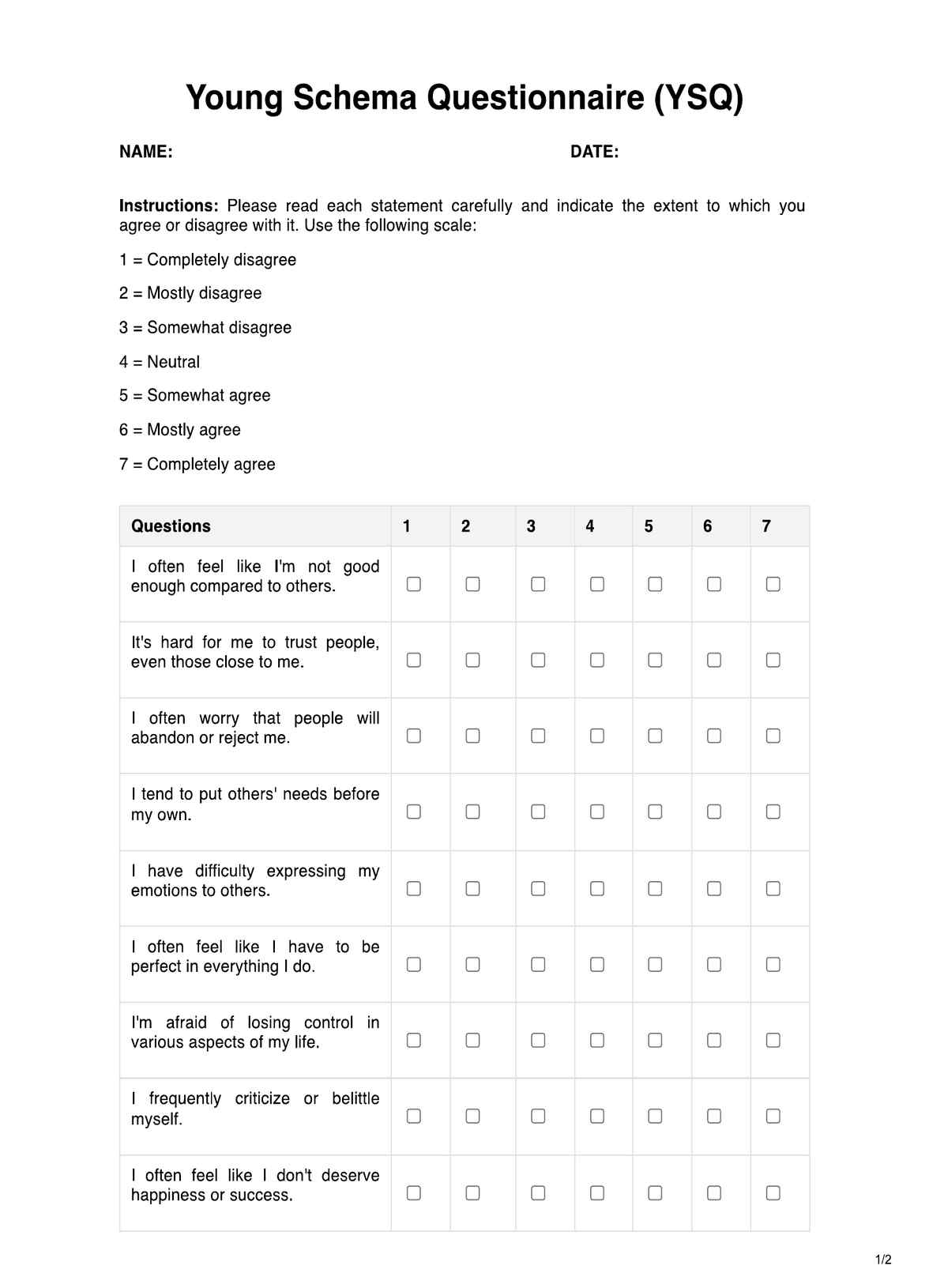A good number of depression scales come with number ranges, each with a designation for a severity level. The Zung Self-rating Depression Scale comes with number ranges to help you gauge your patient’s depression severity level.

Zung Self-Rating Depression Scale
Issue the Zung Self-rating Depression Scale to your client to assess the severity of their depression and see what you can do based on the results!
Zung Self-Rating Depression Scale Template
Commonly asked questions
While it does sound strange to quantify a depression’s severity level, what the Zung Self-rating Depression Scale and many other depression scales do is create a semblance of objectivity through their score ranges and designations. They are there to give you an idea of how mild or severe your patient’s depression is, as well as help you determine what goes into your treatment plan for them.
Self-forgiveness can help people let go of harsh self-criticisms. It can also help them realize that they’re human and they’ve made mistakes. Once they realize these, they can take the steps to move on and do better.
EHR and practice management software
Get started for free
*No credit card required
Free
$0/usd
Unlimited clients
Telehealth
1GB of storage
Client portal text
Automated billing and online payments











